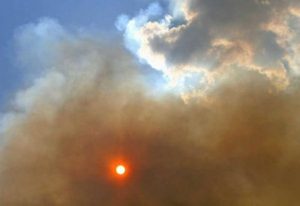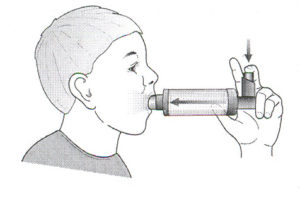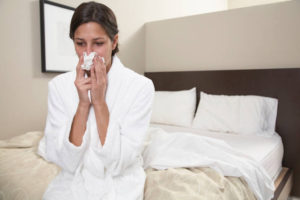 My asthma is worse when exposed to smoke from fires, pollution, or any particulates the air. If you are an asthmatic of suffer from allergies, you probably are already aware of this fact. But what about the people who smoke or do not have allergies or any breathing problems. You cannot blame them, they are just not aware of the problem. They go about their own lives without giving it a seconds thought about the impact they have on other people. They do not even realize that their clothes smell. Their cars smell and certainly their homes also smell of stale smoke. Some people are really awful. Their clothes just reek of stale smoke and you cannot stand to be close to them.
My asthma is worse when exposed to smoke from fires, pollution, or any particulates the air. If you are an asthmatic of suffer from allergies, you probably are already aware of this fact. But what about the people who smoke or do not have allergies or any breathing problems. You cannot blame them, they are just not aware of the problem. They go about their own lives without giving it a seconds thought about the impact they have on other people. They do not even realize that their clothes smell. Their cars smell and certainly their homes also smell of stale smoke. Some people are really awful. Their clothes just reek of stale smoke and you cannot stand to be close to them.
Asthma is Worse When Exposed to Smoke – Hospital Nurses Who Smoke
About the worst situation I have ever encountered is being in a hospital because I am having an asthma attack and being looked after by a nurse who is a smoker. They are not allowed to smoke in the hospital, thank goodness, but they still go outside and grab a quick smoke on their breaks and at lunch hour. When they come back in everything about them smells of stale smoke. Their clothes smell terrible, their skin and their hair all have that stale smoke smell!
You do not need to get very close to someone to smell the stale smoke smell. Some people smell so bad that just being in the same room with them is enough to set asthmatics off with an attack. Anyone working in a hospital should not be allowed to smoke while on the job and should also be required to wash their clothes every day! This is really difficult for asthmatics, we are not just being picky or making this up.
Pollution from Forest Fires
This situation can be very bad for people with all kinds of allergies. About all I can say about this situation is either stay inside or get out of town and get away from the smoke and the pollution. Some people will also wear a mask over their nose and mouth. This will work to some extent and probably block 80% of the contaminants which is better than nothing. Just get out of town and stay away until it is over. When you do come back you may have a cleaning job to do to rid your home of the smell of smoke. Before you leave make sure that all windows and doors are closed up tight to avoid allowing the smoke to come inside and contaminate your home.
Smoking in Public Places
Many people smoke in public places, because this is quickly becoming the only place they can smoke. They must be outdoors or in designated smoking rooms. Asthmatics will avoid these locations and they are smart to do so. The smell from cigarette second hand smoke can literally take your breath away when asthmatics are exposed to smoke in this manner.
Cigar smoke is really bad. Can you believe that there are still some places that allow the smoking of cigars in doors! Most are relegated to outdoor areas or at least cigar lounges. We routinely walk past a bunch of guys who sit outside along the sidewalk and smoke cigars. They sit about 10 feet back from the sidewalk and it is still very over powering when you walk past them and the breeze is blowing in our direction. Hard to believe but people still smoke these things and enjoy them.
Perhaps you are thinking that the writer is just a non smoker who is trying to make an issue out of this and give smokers a difficult time. This is not the case at all. If you suffer from asthma or know someone who does, then you already know that this is a real problem for these people and they just need to get away from these smokers.
For more information about asthma is worse when exposed to smoke and other ways of dealing with asthma, click here.



 I have asthma and I was also fortunate enough to participate in asthma research studies recently at the local Ottawa hospital. The purpose of the study was to assess patients who have been diagnosed with asthma and confirm that they actually have asthma. There seemed to be some doubt as to whether patients were actually being diagnosed properly or not with this problem.
I have asthma and I was also fortunate enough to participate in asthma research studies recently at the local Ottawa hospital. The purpose of the study was to assess patients who have been diagnosed with asthma and confirm that they actually have asthma. There seemed to be some doubt as to whether patients were actually being diagnosed properly or not with this problem. Consumers suffering from asthma must develop an action plan that leads to controlling your exposure to whatever is causing your asthma to flare up. This is the only way you can lead a normal active life. The best way to do this is to first of all see your doctor and then possibly a specialist. They will assess you for the best treatment and ongoing maintenance treatment you require. Developing an asthma action plan is not that hard. Provided that you have good input from your doctor as well as your pharmacist and yourself. Ultimately it is up to you to manage your asthma. Staying away from those things that trigger an attack, taking your medication as prescribed and paying attention to your body. all of these things will help you to lead a regular life and manage your asthma.
Consumers suffering from asthma must develop an action plan that leads to controlling your exposure to whatever is causing your asthma to flare up. This is the only way you can lead a normal active life. The best way to do this is to first of all see your doctor and then possibly a specialist. They will assess you for the best treatment and ongoing maintenance treatment you require. Developing an asthma action plan is not that hard. Provided that you have good input from your doctor as well as your pharmacist and yourself. Ultimately it is up to you to manage your asthma. Staying away from those things that trigger an attack, taking your medication as prescribed and paying attention to your body. all of these things will help you to lead a regular life and manage your asthma. This is a 3rd post about allergies and asthma. We feel so strongly about this subject that we are devoting four posts to this subject. Our family has to deal with allergies and asthma on a daily basis and spring time is the worst time of year for us. You can also read “Asthma From a Patients Perspective” and “Allergies and Were You Live”, which were our two previous posts. Allergy season is here for us and we are dealing with it the best we can.
This is a 3rd post about allergies and asthma. We feel so strongly about this subject that we are devoting four posts to this subject. Our family has to deal with allergies and asthma on a daily basis and spring time is the worst time of year for us. You can also read “Asthma From a Patients Perspective” and “Allergies and Were You Live”, which were our two previous posts. Allergy season is here for us and we are dealing with it the best we can.